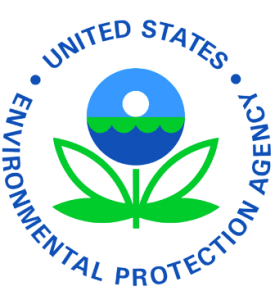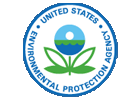FOR IMMEDIATE RELEASE:
September 26, 2012
Contacts:
Jan Hasselman, Earthjustice
Dvija Michael Bertish, Rosemere Neighborhood Association
Brett VandenHeuvel, Columbia Riverkeeper
Mark Riskedahl, Northwest Environmental Defense Center
WA Court of Appeals Rules County’s Plan to Manage Polluted Runoff Illegal
Taxpayer subsidy, fish-killing loopholes scrapped by judges
as violations to clean water laws
Tacoma, WA – In a major decision with statewide impacts in Washington State, a court of appeals ruled Clark County’s weak development rules that allow too much polluted runoff violate state and federal laws to protect clean water. The ruling, announced late Tuesday, signals an end to the county’s on-going failure to protect rivers, streams and salmon threatened with extinction.
“We applaud the court of appeals for recognizing that Clark County’s refusal to comply with clean water laws is unfair to other cities and counties in our state, not to mention industries, that continue to work hard to clean up our polluted waterways,” said Dvija Michael Bertish of the Rosemere Neighborhood Association. “As residents of Clark County who enjoy fishing and swimming in our local rivers, we’re fed up with our elected officials’ attempts to compromise our health and safety—especially when the law requires otherwise.”
Rosemere Neighborhood Association, Columbia Riverkeeper, and the Northwest Environmental Defense Center, represented by Earthjustice, challenged Clark County’s adoption of development standards that were too weak to prevent significant harm to the county’s already-stressed rivers and streams. “The Court of Appeals ruling comes down to this—clean water is our future and everyone needs to do their share to keep our water clean,” said Jan Hasselman from Earthjustice, who is representing the groups.
Polluted runoff, or stormwater, is a toxic stew of metals, oil, grease, pesticide, herbicides, bacteria and nutrients. When it rains, the toxic runoff drains off roofs and streets in amounts that seriously degrade water quality and kill marine life. The county and an association of developers appealed a January 2011 ruling of the state Pollution Control Hearings Board (PCHB) that the county is out of compliance with federal clean water laws and shifted the burden of protecting clean water from developers to local taxpayers.
Specifically, the PCHB found Clark County’s stormwater program:
- Is not based on any science and failed to protect water quality and salmon.
- Unlawfully exempts development projects that “vested” prior to April of 2010.
- Unlawfully allows Clark County to shift resources from its existing retrofit program to mitigate for new development.
- Unlawfully fails to require “low impact development” at new development and mitigation sites.
The Court of Appeals concurred. “Not only has Clark County violated the law, it is ignoring the very real economic and quality of life costs associated with dirty stormwater pollution,” said Brett VandenHeuvel, Executive Director of Columbia Riverkeeper. “The County’s rogue approach to dealing with stormwater pollution ignores the very real costs of increased flooding, polluted drinking water, and toxics in fish. It’s time stop using outdated thinking and transition to much greater reliance on low impact development and better land use planning. The stakes are too high for delay.”
The county has 30 days to appeal the decision to the state Supreme Court if it chooses. Additionally, a federal court has stayed an enforcement action against the county until the appeals court rules, and is likely to open the case now that the appeal is resolved.
A copy of the Court of Appeals ruling can be downloaded here: WA COURT OF APPEALS D2 41833-9-II PUBLISHED OPINION
A copy is available online here: http://www.courts.wa.gov/opinions/index.cfm?fa=opinions.showOpinion&filename=418339MAJ
Other news links:
Editorial: County Keeps Hearing ‘No’ – Stormwater rules fight is being lost in the courts; it’s time to give up
Clark County loses stormwater ruling
Washington court rules against Clark County in polluted runoff case
Clark County loses polluted runoff case
#















![Washington State Water Quality Assessment [303(d)] Washington State Department of Ecology](http://www.rosemerena.org/home/wp-content/uploads/2009/03/ecy_logo.gif)

